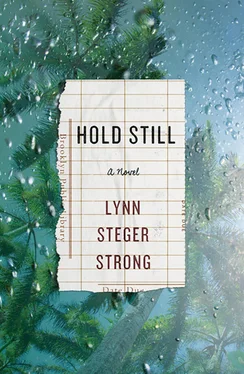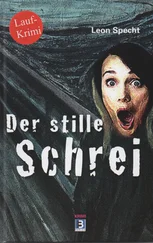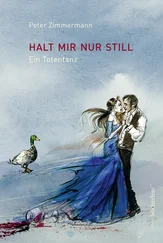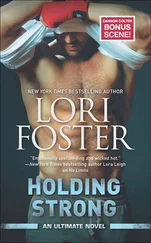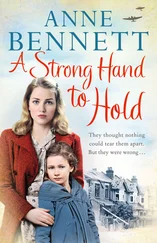Maya rides the subway just after rush hour, standing, holding the pole, and brushing up against a man in a suit who types furiously on his phone. There are empty seats, but she can’t sit. She’s going to a dinner party by herself. She and Stephen rarely socialize together anymore. She explained briefly where she was going. He’s agreed to try to have a nice conciliatory dinner with their son.
Maya’d dressed carefully, showering, dabbing lipstick, swiping mascara, making herself stare back at herself longer than usual in the mirror over the sink in the bathroom in their room. She wears a dress, even though she hardly ever makes this effort in winter, the tights, the sweater, the slightly more than sensibly heeled boots. It’s the third thing she tried on. She wanted to feel a little less like the person that she always is. The dress hits just above the knee, in big patches of blue and purple. She bought it with Laura. With Laura is the only time she shops and the only time she buys clothes in colors other than black or gray. She has brushed her hair back and fastened it loosely at her neck with a small wooden clip. She feels, if not pretty, necessarily, then foreign enough to feel capable of interacting in the unstructured setting of this gathering.
There are few people who could get Maya to leave the house after dark these days, but she hasn’t seen Caitlin in almost two years. She is one of Maya’s former students, applied to the program four years ago, explicitly to work with Maya. And Maya had lobbied hard to get Caitlin in. She’d gone to a not-well-thought-of state school, and while her grades were impeccable, her other achievements were unremarkable. Her writing sample had been messy, unedited, not academic really at all. It had read like a sort of literary love letter to Woolf, whom she’d meant to focus on. She’d written on the moment in Mrs. Dalloway when Septimus sits with his wife to make a hat. About how he had an eye for colors, could see things most people couldn’t, but needed his wife to bring his ideas to fruition in the world, about the impossibility of communication, the need to turn the abstract into the tangible, how some people cannot achieve this without the help of someone else.
Maya’d been so moved by her writing. She’d finally managed to convince the committee that the potential evident in Caitlin’s work was worth the risk of taking on a less-credentialed student. And Caitlin had, immediately, delivered on the potential Maya had seen. Caitlin had always seemed older than most of the other grad students; she lacked that smugness so many people her age possessed, that certainty that though they’ve made so few major life decisions up until this point, when they did they would somehow prove better and less compromising and complex than all those that came before. And then, after two years of being exactly what Maya hoped she’d be, Caitlin abruptly left. She’d been effusively apologetic. She wanted to write: novels, fiction, her own art — she’d said all of it in a whisper, in Maya’s office, a sweater wrapped around her and her arms crossed as she spoke, afraid, maybe, to throw the full weight of such aspirations out into the world.
Caitlin had met Ellie once as well. Ellie loved it at first, Maya bringing students home for dinner. When she was small these students all doted on her. She was precocious then and perfect-looking, the big dark eyes, the long sharp nose. When Maya brought students home — twenty-somethings, quiet, awkward, with their broken-in leather bags and their furrowed brows — she promised them a home-cooked meal that Stephen then cooked. She was proud of this as well, being a woman for whom the man made the meals — she took pleasure in showing them off, her gorgeous happy family, the warm quiet world in Brooklyn that they’d built for themselves.
But soon after Ellie turned twelve there was a marked shift in how she received these young people. She sulked when they came over. She picked at her food and then snuck up to her room.
They’d been talking about the novel Caitlin was working on. It was still nascent then. She’d ridden the 2 train back with Maya from campus, the two of them sitting next to one another, knees touching, awkward suddenly outside their usual context.
“I’ve been charting out To the Lighthouse ,” she said to Maya at dinner, “trying to figure out how it’s formed.”
“How great!” Maya said. She hadn’t touched her food and was staring at Caitlin. She felt her daughter’s eyes on her.
Caitlin began to speak again. She was explaining the shift that happens in the “Time Passes” section, how she was trying to understand how to make large swaths of time speed up, then slow down.
“Have you ever had long hair?” asked Ellie, interrupting. She had turned toward Caitlin and her mouth pursed a bit as she appraised her face; Caitlin took another bite of the orzo with spinach and chicken Stephen had cooked.
“I’m sorry?” said Caitlin. She smiled at Ellie, looking briefly back at Maya, who sat slightly confused, then scared.
Caitlin was round around the edges. She was short, with thick thighs and a belly, her face a perfectly full moon.
“Your hair,” said Ellie again. “Has it ever been long?” There was something in Ellie’s voice, the flatness of it, like she was trying at something. Maya held tight to the edge of the table and begged her daughter silently to reel herself back in.
“Of course.” Caitlin laughed, and reached up to the dark blond nubs that sat atop her head. “When I was at LSU. It got so hot in summers. I had a friend who was a physicist and she convinced me she understood angles, so she cut off all my hair.” She looked at Maya, who smiled back. “We’d had some wine.” Then back to Ellie, “I liked how easy it was, so I only went shorter after that.”
“Ha,” said Ellie, clearly not amused.
Caitlin reddened. She wore a purple T-shirt and jeans that pulled at the pockets. Her eyes and mouth were small. Maya thought it might be worse to scold her daughter. She wasn’t sure what to do or say to make it all stop there.
“El. .”
Her daughter interrupted her, still looking right at Caitlin. “It’s slimming, you know, long hair.”
Caitlin looked down at her plate. Maya stood, then stopped a second, not knowing which way to turn.
Caitlin had recovered valiantly. She’d initiated a conversation with Stephen about his Germans, talked soccer — she’d been a defender in high school — with Ben. Maya waited until she’d left and both Stephen and Ben had gone upstairs to confront Ellie. But when she found her, in her room with her charcoals and a large piece of thick white paper, Ellie was already crying, saying she was sorry, saying she didn’t know why she’d been that way. Maya had no choice but to pull her in and comfort her, worrying only for a moment that she might still need to scold her for a thing she still wasn’t completely sure her daughter knew she’d done.
The apartment is a twenty-minute walk east from the subway. Maya’s just about at the water by the time she finds the address. She walks up four flights of stairs and hears the sound of bongo drums coming from the floor above, a sloppily strummed banjo, and smells the sweet smoky scent of weed. There are shoes outside each apartment, a stroller folded up in the corner across the hall.
She used to live in an apartment almost exactly like this, those few months before her dad died and then again before she married Stephen. The first summer after school she’d hardly left the apartment. She spent nearly all her time locked up in the tiny space where she knew she could be sure that she’d be left alone. She had no air conditioner and no TV, just an old stereo, a fan, and loads of books. In summer she would point the fan right on herself and lie naked on the floor most of the day. She took cold showers every few hours, walking around with the windows open, tying her hair up in a knot to keep the water in. She’d read and nap; she’d sit very still and listen to the cadence of the footsteps of her neighbors and try to imagine whatever it was they did every day. The family below her had three kids, shoved into the same tiny crooked studio as hers. She peeked whenever she could, when their door was open, as she was coming up or down the stairs. They were all stacked in there: beds on top of beds, shelves on top of shelves, with pots and pans and clothes and shoes all mixed in. They had twin girls and an older boy; the girls would clod along in their brother’s hand-me-downs, those thick-soled athletic shoes that look oversized even when they fit. She always knew when they were coming up the stairs, the clop-clop of their feet, and then, almost every time, one of the kids would either laugh or scream. A lot of nights, she’d hear them coming in from wherever it was they’d been, late for children, ten, eleven, sometimes later, and then the smells would waft up through the open windows, all sorts of spices she’d never even thought to dream of, curries and onions so thick her eyes would run. And Maya would lie on the floor of her apartment, which felt huge with the image of all those stacks inside her head. And she’d wonder how she could shape her face or hold herself in just the way that would get them to knock on her door and ask her to come fold in with them.
Читать дальше
